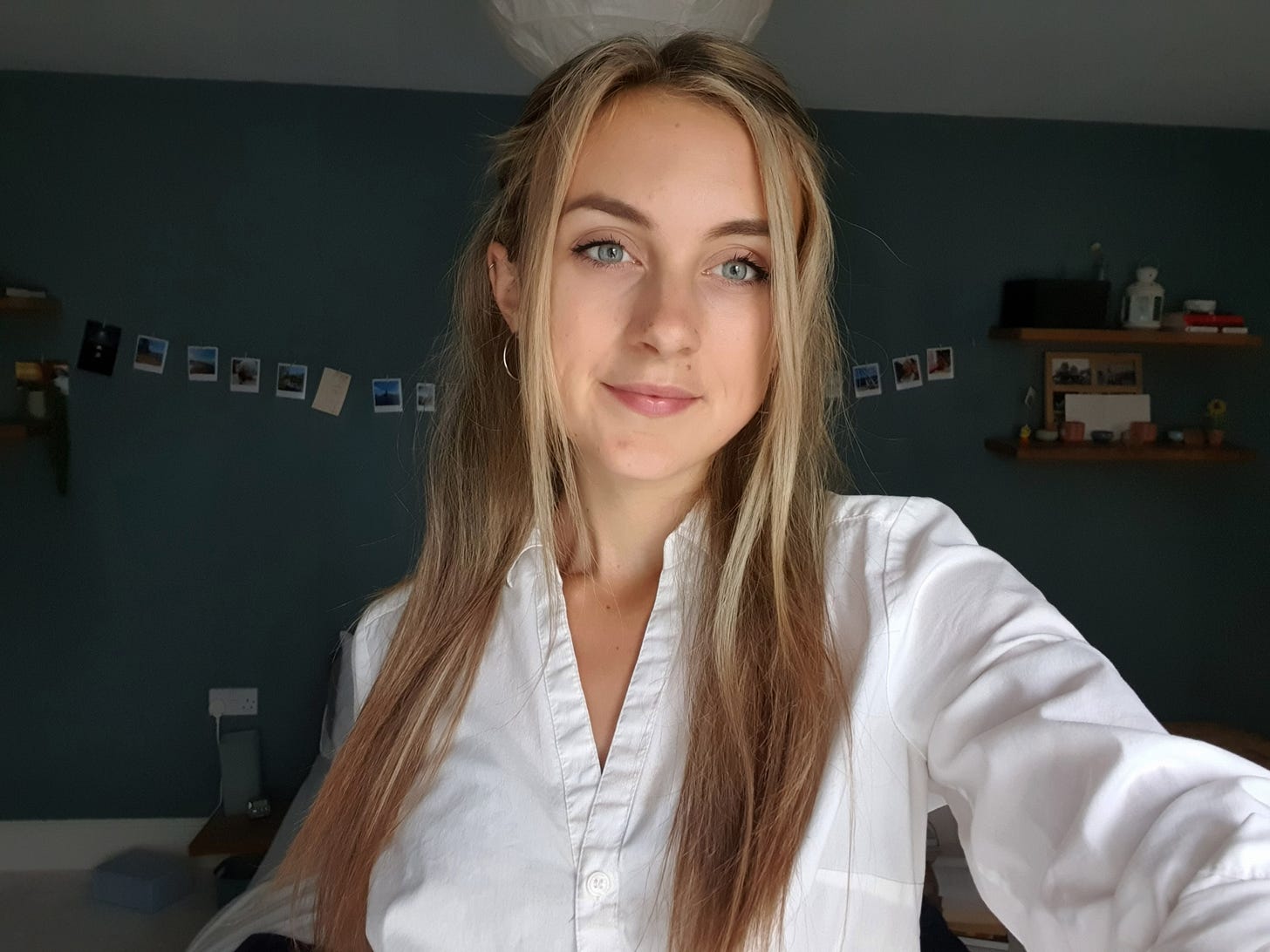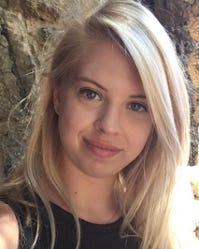Our Team
Get to know a little bit more about the team behind the Open Fusion Collective… our backgrounds, what brought us to fusion, and why we are motivated to encourage more discussion of the social and ethical sides of fusion.
As we grow the OFC, we will be open to having new members join our team, especially those from outside academia. If you think there is a role you’d be interested in, send an email to hello@openfusioncollective.org or using the button below
Sophie Cogan — Researcher in Politics & Environment, University of York
I am a social science researcher within the Fusion-CDT. My research looks at the alignment of the values promoted in the public image of fusion and the values held by fusion developers to see if there are any potential conflicts that may emerge in research and development. By linking the prospects for fusion with climate change, energy poverty and energy security, moral threads are woven into the fabric of the technology. I intend for my research to identify how these threads are intertwined and test their integrity.
Before finding my current research program, I studied in Politics and Philosophy and Global Health, but also spent time working in healthcare and as an editorial assistant at a scientific journal. Meanwhile, I have always spent my spare time reading books and listening to podcasts on any and every scientific topic I can find! The opportunity to join the Social Science branch of the Fusion-CDT meant I could combine my personal and academic interests in an impactful way. Throughout my studies, I have been driven by an underlying interest in global justice and practical ethics, so, with a lack of research around the ethical angle of fusion development and commercialisation, it was a space I felt well-placed to contribute to.
My drive to form and grow the Open Fusion Collectives comes from the same fundamental interest in ethics and human wellbeing that has motivated my research so far — across both global health and energy! By enabling more people to contribute to the discussions around fusion energy technology, I hope a more pragmatic, transparent and responsible path to fusion energy can be taken.
Richelle Boone — Researcher in Sociology/Philosophy of Science, Leiden University
I am a researcher (in the INSCONS project) working on an ethnography about the organization of knowledge creation and technology development in the fusion community. In the book, I illustrate how different fundamental ideas about knowledge and technology lead to different preferences among fusion researchers for organizing the work in their field. Building on these insights, I propose a theory linking epistemology, cognition and organization. I hope this theory will support fusion researchers and policymakers in making strategic decisions, helping them design a path to fusion energy that is effective, and also fulfilling for those involved.
As I learned more about fusion research while writing the book, I came to realize that fusion researchers cannot – and should not – do it alone. We are on this path as a society. On the one hand, I believe this means we should gather, create and make visible a broader range of expertise that can contribute to responsible and efficient development and deployment of fusion. On the other hand, I believe it means fusion should be developed with society in mind. Technologies shape society, and we should anticipate their potential effects during the development process – before choices become irreversible. These beliefs formed the drive for creating the Open Fusion Collective.
This motivation fits my deep commitment to connecting and translating insights across domains at the intersection of science, technology and society. My academic path – from physics to history and philosophy of science to the social studies of science – reflects my interest in bridging different ways of knowing. Through this training, I have also learned how various fields and stakeholders communicate, and how collaboration across domains can be organized. I find it important to bring these, and broader insights from science studies, into practice and policy contexts. I have pursued this in various roles – from my time at the European Parliamentary Research Service, to my involvement in the youth scientific think tank of a Dutch political party, and currently as co-chair of the Governance Task Force of the ngEHT collaboration – and, of course, through founding the Open Fusion Collective.
Michiel Bron — Researcher in Public Administration & History of Science, Tilburg University
I am delighted to have joined the Open Fusion Collective team in 2025. The collective aims to bring together different people and perspectives to discuss developments in nuclear fusion in their social, technological, and environmental context. Now that nuclear fusion is back on the agenda, we need such a platform more than ever.
In my research career, I aim to connect questions about the governance of the future energy market with studies to historical transition pathways. Already for my PhD, I examined how and why various oil actors got (dis)engaged with alternative energy sources such as nuclear energy (including nuclear fusion) throughout the twentieth century. Currently, I am part of a broad consortium of researchers (the MODES project) investigating the roles and responsibilities the government will have in the current energy transition, and how these will relate to the roles of other stakeholders in the energy system of 2050.



